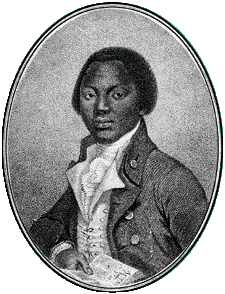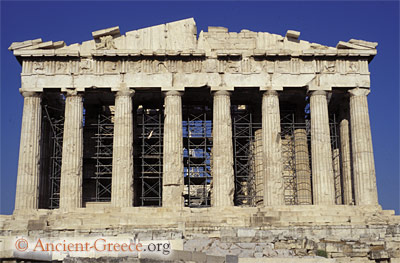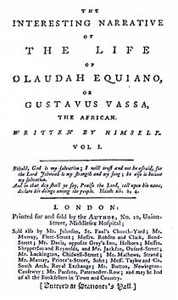
Tuesday, December 8, 2009
African American History, December 8

Monday, December 7, 2009
World History
African American History, December 7th
We also looked at two laws that applied to African Americans of the North; the Black Laws and the Fugitive Slave Law. The Black laws restricted rights for African Americans in housing, voting, integration, employment, and residency. The Fugitive Slave Law allowed runaway slaves who were caught in the North to be returned to the south and handed back to the master. There were many incidents where free African Americans were kidnapped and forced into slavery as a result of the Fugitive Slave Law.
Thursday, December 3, 2009
African American History, December 3
What did Harriet Jacobs call slavery? Why?
How many slave children did the doctor Norcum have? What did he do with the children?
What is the contradiction between a pastor and his wife and a slave and his master?
Why did slave owners introduce Christianity to their slaves?
What happened in 1831 to change slavery in the South?
Where was Nat Turner’s rebellion? What was his profession?
What happened when White people got ‘afraid?’ Why?
Why did Harriet decide to run away?
Who was the typical runaway? Why didn’t women run away?
Why did Thomas Jefferson believe that slavery was near its end? What changed that assumption?
What was the affect of the cotton gin on slavery?
What was the purpose of using a different language in slave auctions?
What was the purpose of the Missouri Compromise of 1820?
What happened as the price of slaves increased?
What does it mean to be ‘sold down the river?’
How did slave owners view themselves during the ‘Cotton Kingdom?’ What professions did they take up in addition to owning plantations?
Tuesday, December 1, 2009
World History, December 1
Name three effects if the Germanic Invasion?
What kind of new government arose during Rome’s decline?
What role did monasteries play during this period?
Who were Charles Martel and Pepin?
What was important about Charlemagne being crowned as emperor?
Monday, November 30, 2009
African American History, November 30


Name _____________________ Date______________________
African American History: Understanding charts, graphs, and maps
Chart 1: Distribution of Slaves, 1790-1860
1. In which decade was there the greatest increase in slave population?
2. Draw a line graph to represent the number of slaves and the number of free blacks from 1790- 1860. Use two different colors. Use 4 million as the top point on the y-axis.
1. Which state had the largest slave population in 1790 and in 1860? Which state had the smallest slave population in 1790 and in1860?
2. How many states had slaves in 1790, 1820, and 1860
1790 -
1820 -
1830 –
1790 -
1820 -
1860 –
African American History, Extra Credit Opportunities

Philadelphia events commemorate John Brown's legacy
Please read this article from the Philadelphia Inquirer and attend at least one event honoring John Brown. Let me know about the ceremony, reception, concert, exhibit, etc. and you will receive five extra credit points. To see the complete listing of events please see the link following the Inquirer article.
http://www.philly.com/inquirer/local/pa/20091130_Phila__events_commemorate_John_Brown_s_legacy.html
Wednesday, November 25, 2009
World History, November 25
What were the names and characteristics of the four parts of the Justinian Code?
Which peoples attacked the Byzantine Empire? What part of the empire did they invade?
What two religions emerged from the split of the Christian Church?
The Russian Empire: pgs 307-313
According to The Primary Chronicle, how did Vladimir choose Byzantium Christianity?
How did Moscow’s location contribute to its growth?
What event marked Russia’s liberation from Mongol Rule?
Turkish Empires: pgs 314-317
What did the Turks take from the Persian culture?

** millions of people
Which Empire lasted the longest?
The Population of Byzantium was five times the size of which empire?
Which Empires existed in the year 400 CE?
What are 3 things that you learned from the Genghis Khan Video?
Tuesday, November 24, 2009
Monday, November 23, 2009
African American History, November 23-24

Questions to Answer:
1. What was the purpose of Jane Johnson’s trip north to Philadelphia?
2. Who was William Still and what was his involvement in this case?
3. What role did Passmore Williamson have in Jane Johnson’s liberation?
4. What were the consequences for the men who helped Jane Johnson and her
children?
5. What legal reasoning did Judge Kane use to imprison Williamson? What other
reasons were used to make this decision?
6. Why did this case become national news?
7. Why didn’t the federal Fugitive Slave Act of 1850 apply to this case?
8. How long did Williamson stay in prison? What was the final outcome of his
case?
9. What role did Jane Johnson play in the cases of Still, Williamson and the antislavery
movement?
10. Where did Jane Johnson and her children finally settle?
Friday, November 20, 2009
African American History, November 20
Many problems encountered in society today can be traced back to historical origins. Please write a 1-2 page paper about problems of the African American society today and trace their origins or how you think the problems came about? I am looking for evidence of original thought, understanding of the ideas discussed in class, and an understanding of how the problems faced today stem from historic, systematic, and calculated decisions.
Due Date: December 1, 2009
Thursday, November 19, 2009
Sunday, November 15, 2009
Wednesday, November 11, 2009
Tuesday, November 10, 2009
African American History, November 10
After 1783 there was a growing trend in the North that favored emancipation. The Mid-Atlantic area also agreed but it took longer because whites were invested in the continuation of slavery.
The US constitution was a major force for the continuation of slavery. Key clauses helped strengthen the institution of slavery in the South
The emergence of the cotton industry (and invention of cotton gin) increased the need for slaves. Most of the cotton was exported to England who was the world’s largest supplier of textiles.
There was also new land for the United States. The Louisiana Purchase opened a debate about whether the new territory would permit slavery
Free black communities developed institutions to strengthen their standing. The first was the mutual aid society that served as a type of life insurance and also financed early abolitionist activity.
The Church served as the core of the African American community.
Black schools were supported by the church and mutual aid societies
By the 1790s there was a small black elite class in the North
Slave rebellions became more violent in the south and whites instituted new laws that limited the possibilities of an insurrection.
In the years after the War of 1812 there was an increased amount of friction over slavery in the new territories
The Missouri compromise (1820) was an effort to maintain sectional balance by allowing Missouri to enter the Union as a slave state and Maine to enter as a free state, while banning slavery north of the 36’30’’ line of latitude.
African American History, November 9th

The British needed money to pay for the war so they decided to tax the colonies. The colonies were used to self-government rebelled against the new taxes. The term ‘no taxation without representation’ comes from this period
The new taxes led to the creation of the Continental Congress. In July 1776 they wrote the declaration of Independence. It is important to note that DOI had separate rights fro Blacks and Whites.
The DOI was written during the time of the enlightenment and many African Americans assumed that the universal rights described by the founding fathers would also include Blacks.
The enlightenment shaped the careers of America’s first intellectuals
New institutions made science and literature more widely available and blacks took advantage the new opportunities
As the war began between the colonies and Britiain, African Americans had to choose a side; when the British offered freedom to escaped slaves who joined their army many joined their side
Necessity forced the Continental Congress to allow African Americans to serve and as a result African Americans in the north were given their freedom
Anti-slavery societies led by the Quakers (Pennsylvania) played a key role in freeing Blacks.
Friday, November 6, 2009
World History, November 6
Allah
Muhammad
Islam
Hijrah
Mosque
Hajj
Qur'an
Sunna
Shari'a
If you are having any problems locating the definitions, you may email me at rschloss@philasd.org
African American History, November 6
If you are absent today, November 6th, you will be expected to know the following definitions. You may use the internet for definitions and analysis which will help you with further understanding the content. Most of the words should serve as a review of what we have been learning over the past two weeks.
Abolitionist
Antislavery society
Shay’s rebellion
Fugitive slave act
Gabriel’s Revolt
Three-fifths clause
Cotton gin
Mutual aid society
Free African society
Prince Hall
Liberia
Toussant Louveriture
Missouri Compromise
If you are having any problems locating the definitions, you may email me at rschloss@philasd.org
Wednesday, November 4, 2009
Septa Strike day 2: African American and World History
Tuesday, November 3, 2009
Septa Strike!

Hello everyone,
Monday, November 2, 2009
Thursday, October 29, 2009
World History, Rome Quiz Review
Vocab: You will be responsible for knowing these words and why they are important.

Patricians
Plebeians
Senates
Tribune
Punic wars
pax romana
Apostles
civil war
Constantine
Multiple Choice, Short Answers, True/False Topics
What is the legend of Rome’s founding?
Who were the first people to live in Rome?
Why was a republic established in Rome?
Why was Rome’s location so important for trade
What was the cause for the Punic Wars?
What was the significance of the 12 tables?
Who was Hannibal?
Why did Rome fall? (6-8 sentences)
How did Christianity originate (6-8 sentences)
Tuesday, October 27, 2009
African American History, October 27
African American Grades are up!


Monday, October 26, 2009
African American History, October 26
Thursday, October 22, 2009
Wednesday, October 21, 2009
African American History: Who is Crispus Attucks?
Tuesday, October 20, 2009
African American History, October 20
African American History, Homework Oct 20

Senate Denies D.C. Voting Rights
'Taxation Without Representation' Rally Cry Falls on Deaf Ears
A slogan from the Revolutionary War is alive and well in the nation's capital. ..
Continue reading here.... http://www.abcnews.go.com/Politics/Vote2008/Story?id=3615082&page=1#
Monday, October 19, 2009
World History, October 19
How did Rome move from a Republic to an Empire?
Describe daily life in Pax Romana-era Rome?
Students will read the corresponding section of the textbook and outline the main points and supporting details. There should be 3 main points and at least two supporting details for each main point.
Example of the assignment:
MP1: Economic Turmoil led to the decline of the republic
s1: bigger gap between rich and poor meant uneven power among citizens
s2: Civil War Broke out
will evolve into:
One major reason for the decline of the Roman republic and the rise of an Empire was economic division between classes. Under the republic there was equal representation by the Senate and Tribune. As the Rich got richer they did not want equal representation. A civil war eventually broke out as the economic turmoil proved too difficult to reconcile which lead to the rise of the Empire.
Thursday, October 15, 2009
African American History Quiz Review
- The Great Awakening
- The African-American Impact of Colonial Culture
- Language, Music, and Folk Literature
- Black Women in Colonial America
- Black Resistance and Rebellion

Wednesday, October 14, 2009
African American History, October 14
By RACHEL L. SWARNS and JODI KANTOR

WASHINGTON — In 1850, the elderly master of a South Carolina estate took pen in hand and painstakingly divided up his possessions. Among the spinning wheels, scythes, tablecloths and cattle that he bequeathed to his far-flung heirs was a 6-year-old slave girl valued soon afterward at $475.
In his will, she is described simply as the “negro girl Melvinia.” After his death, she was torn away from the people and places she knew and shipped to Georgia. While she was still a teenager, a white man would father her first-born son under circumstances lost in the passage of time.
Continue here: http://www.nytimes.com/2009/10/08/us/politics/08genealogy.html
World History Homework, October 14

Jamie ShreeveScience editor, National Geographic magazine
October 1, 2009
Scientists today announced the discovery of the oldest fossil skeleton of a human ancestor. The find reveals that our forebears underwent a previously unknown stage of evolution more than a million years before Lucy, the iconic early human ancestor specimen that walked the Earth 3.2 million years ago.
Attention African American History Students:
Tuesday, October 13, 2009
Periods World History Grades as of 10/13/09
African American History, Oct 13,15
Easiest Extra Credit Assignment of the Year!

Thursday, October 8, 2009
How did the evolving economy of the British colonies come to depend on a race-based system of slavery?
In the early Jamestown colony there were indentured servants – a European tradition mostly white, but also Africans
Blacks and whites indentured servants worked and lived together
Virginia soon proved to have a perfect climate and soil for Tobacco production - 1630 Virginia was producing over 1,500,000 pounds of tobacco per year. The majority was exported to Europe.
Free blacks were entitled all of the same freedoms that free whites had – owned land, lent money, sued in courts, served as jurors
The British elites viewed Africans as ‘alien’ and treated them differently – poor whites did not
British establish Chattel Slavery
1640-1700 labor changed from mostly white indentured servants to black slaves
British already had a history of chattel slavery from the Islands where they grew sugar –viewed other people as inferior
British gained control of the transatlantic slave trade
African slaves were first imported to America in the 1700's to help with tobacco production.
The more tobacco that was produced, the more slave labor became necessary
Slaves were now property of their masters for life – different than indentured servants (see John Punch from movie)
Blacks were sold at higher prices because they would serve for their entire lives
By 1660s the colonies had seen slavery as the natural condition of black people
This was the beginning of a two-tier system based on race
House of Burgesses (Virginia’s Government) affirmed that a child’s status would follow the mother
By 1700 African slaves had the same rights as livestock but unlike animals they were also responsible for their transgressions
Wednesday, October 7, 2009
African American History, missing work? Here you go

Excerpts of The Interesting Narrative of the Life of Olaudah Equiano or Gustavus Vassa the African (London, 1789).
http://www.newsreel.org/guides/equiano.htm#They
Questions to Answer
1. Describe the Oloudah Equiano's family
2. Describe how Equiano was taken into slavery
3. Describe Equiano's Captors
4. What were a few of the sights that Equiano experienced?
5. Describe one episode of cruelty on the Slaver
6. Describe one way in which the crew prevented the slaves from rebelling
7. Describe Equiano's first encounters with Planters (know the def. of a Planter)
8. What did the old Africans tell Equiano once he reached harbor?
9. What was the firs think that struck Equiano when he came to land?
10. Describe the process of buying slaves as told by Equiano
African American History Extra Credit (October-December)

Tuesday, October 6, 2009
African American History, October 6

World History Greece Quiz Review
Monday, October 5, 2009
African American History Writing Assignment
Sunday, October 4, 2009
World History: Extra Credit Opportunity!

Friday, October 2, 2009
World History, October 2nd

 similarities included political powers exercised by the citizens and three separate branches of government. We also learned that when Washington DC was being built there were architectural similarities to Athens, which looked to invoke the democratic ideals through a physical representation. The top photo is the Parthenon in Athens. Below is the United States Supreme Court Building.
similarities included political powers exercised by the citizens and three separate branches of government. We also learned that when Washington DC was being built there were architectural similarities to Athens, which looked to invoke the democratic ideals through a physical representation. The top photo is the Parthenon in Athens. Below is the United States Supreme Court Building.African American History Chapter 2 Review
Section 1:
The Atlantic slave trade has its origins in Western Europe’s expansion that began in the 15th century
When Portuguese travelers arrived in West Africa, they found a thriving slave trade, fuelled by demand for slaves in Muslim countries
Europeans became new consumers in the trade
The cultivation of sugar in the new world provided an important stimulus for the rapid expansion of the slave trade between Africa and the Americas
Section 2:
Many of the Africans who were shipped to the Americas were enslaved as a result of the warfare that accompanied the formation of West African States
Captured slaves were marched to coastal factories where they were [processed before transportation to the Americas
Conditions on board slavers were horrible and many slaves died during the long voyage, most from disease
In addition, female slaves were subject to the sexual predation of sailors. Slaves frequently rebelled or committed suicide, taking one last opportunity to control their own fate.
Section 3:
As slaves ships arrived at their destinations, crews prepared their human cargo for sale, doing what they could to make the slaves look as strong and healthy as possible
Once sold, slaves were assigned to work in gangs and endured seasoning, a disciplinary process designed to turn them into compliant and effective laborersDespite the best efforts of planters, slaves were not completely de-socialized by transportation and seasoning. They retained elements of their culture and reinforced these elements through the building of relationships with their fellow slaves
Thursday, October 1, 2009
October 1, 2009

Wednesday, September 30, 2009
September 30, 2009
Today in World History we are looking at the different styles of government in Greece. We established yesterday that due to Greece's rugged geography a number of separate city states emerged with their own distinct style of government. Yesterday's homework asked the question how does your geography shape who you are? Today in class we looked at the different systems of government including monarchy, oligarchy, tyrants, and democracy. We discussed the different characteristics of each. For homework the students are expected to write about the differences between a direct and indirect democracy and then explain which they believe to be better of the two.
In African American History we looked at life after the long journey for the African Slaves. Once they arrived on one of the many islands of the Carri bean, they would be able to rest up so as to increase their value (a healthier slave would fetch more money). Once a slave was sold they would start the 'seasoning' process. Seasoning consisted of becoming accustomed to the duties of the plantation, learning European languages, and receiving new Christian names. We also looked at why the Atlantic slave trade was abolished in 1807; there were moral grounds in the abolitionist movement and also England was shifting economic systems from the plantation system to the industrial system. It is important to remember that the money gained from slave trade and plantations in the colonies would ultimately be used to finance the industrial revolution. Students should be working at home on their assessments that are due on Friday.
Tuesday, September 29, 2009
Welcome to Room 606!
World History 1,2
Week 1
In our first week we looked at the origins of Mankind. We looked at Lucy, named after the Beatles song ‘Lucy in the Sky of Diamonds.’ We saw that Homo erectus was the first to leave Africa and how as our brain grew in size we were capable of performing more tasks like making tools and cultivating plants. During an Ice age we discovered how our first ancestors arrived to North America.
Week 2 In week two we learned that the ability to grow crops made life easier for us and as a result civilizations form. The spread of agriculture allowed early civilizations to have specialized labor that would benefit everyone. We saw similarities and differences in the four early civilizations (Mesopotamia, Egypt, the Indus Valley, and China) and compared and contrasted the different political, social, and economic attributes of each civilization. We illustrated the characteristics in the form of a graphic organizer.
African American History
We began examining African American history from the origins. Students looked at the six major kingdoms of West Africa and compared and contrasted the different political, social, and economic elements of each. Some important attributes included religion (Christian, Islamic, Pagan), systems of rule, and the vast natural resources that made some kingdoms so wealthy.
In our second week we looked at how slavery changed once the Europeans arrived to trade with Africa. Slavery had become necessary in the colonies of the new world and unlike African slavery made up predominantly of women and children, men were needed to harvest crops. We saw how slaves were captured, brought to port, held in factories, and the difficut journey aboard the slavers to the New World.
The assessment for the chapter is a narrative created by the students. The prompt reads: Imagine you are an African living in the interior. In 1-2 pages, typed, explain your trip to port, your experiences at sea, and what you encountered in the New World. Utilize the objectives and at personal incite. Incorporate as many facts as possible. The assessment will be due on Friday, October 2nd!
Objectives for weeks 1 and 2:
How did the arrival of Europeans affect Africa?
How was the slave trade different in Africa?
How did European demand for crops impact the slave trade?
Describe living conditions during the 'middle passage?'
What happened to Africans during the voyage across the Atlantic?
How did Africans resist captivity?
What was life like for women aboard the journey?










